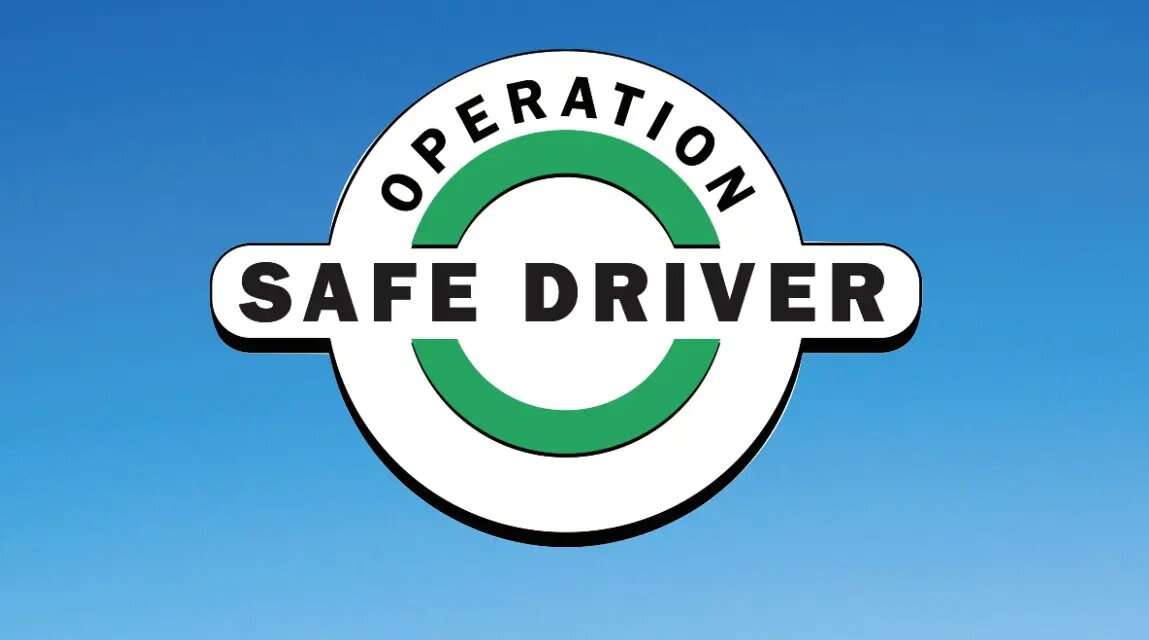CVSA's International Roadcheck is fast approaching, set to occur from May 14-16. This initiative, organized by the Commercial Vehicle Safety Alliance (CVSA), is a comprehensive effort aimed at ensuring compliance with commercial motor vehicle regulations across Canada, Mexico, and the United States.
Certified law enforcement personnel will conduct inspections of commercial vehicles and drivers at various locations including weigh/inspection stations, temporary sites, and mobile patrols. These inspections are intended to verify adherence to federal, state, provincial, or territorial regulations governing commercial transportation.
Data collected during the 72-hour period of International Roadcheck will be analyzed and the findings will be made public during the summer months. Each year, special attention is given to specific categories of violations, and for this year's event, there will be a dual focus on tractor protection systems and the possession of alcohol and controlled substances.
The issue of controlled substance and alcohol possession and use among drivers remains a significant concern, with the number of prohibited drivers listed in the U.S. Drug and Alcohol Clearinghouse (DACH) on the rise. This poses a considerable threat to the safety of all motorists traversing North American roadways.
Throughout the three-day period, inspectors will conduct the North American Standard Level I Inspection, a meticulous 37-step procedure that covers the examination of vehicle components as well as driver documentation and compliance requirements.
For further details on Roadcheck 2024, visit CVSA's official website
Inspection Vehicle Cheat Sheet:
During last year's International Roadcheck in 2023, a total of 59,429 commercial motor vehicles underwent inspection across Canada, Mexico, and the U.S. as part of CVSA's 72-hour enforcement initiative. Impressively, 81% of the commercial motor vehicles and 94.5% of the drivers inspected were found to have no out-of-service violations.
The top five vehicle out-of-service (OOS) violations identified in 2023 were:
- Brake Systems - 25%
- Tires - 19%
- Defective Service Brakes - 14%
- Cargo Securement - 12%
- Lights - 11%
For drivers, the most common out-of-service violations were related to:
- Hours of Service - 41%
- False Logs - 26%
- Other - 9%
- Canceled/Revoked License - 8%
- No Medical Card - 5%
For more details, you can check the official CVSA website here.
Question of the Week:
How long should I keep documentation of my driver's roadside inspection?
Answer:
Motor carriers must retain copies of all roadside inspections for 12 months. Drivers are required to submit the inspection report to the carrier within 24 hours. If unable to return to the terminal, they should mail it in. In cases of violations, repairs must be made and the inspection form signed and certified. This signed form should be sent back to the state of inspection within 15 days.
Best Practice Guidelines for Roadside Inspections:
- Train drivers on how to complete high-quality pre-trip inspections to minimize the possibility of violations.
- Monthly, review CSA scores at www.ai.fmcsa.dot.gov by entering your DOT number or name.
- Review vehicle and driver basics along with associated inspections. Cross-reference inspections on file with those submitted by your drivers. Question drivers who did not submit inspection reports.
- Check the "Carrier History" tab in the Tools/Resource section on your home page to determine if the number of inspections is rising or declining.
- Review vehicle inspections and violations with your maintenance provider to reduce violations.
- Maintain copies, along with any attached repair orders for violations, in the tractor and trailer file.
- Utilize roadside inspection information, including date, time, and location, to cross-reference with drivers' hours of service documentation for falsification violations.
- Train drivers on how to successfully pass roadside inspections and conduct themselves appropriately.
- Keep vehicles clean and well-maintained to avoid being targeted for inspection.
- Advise drivers that moving violations can prompt inspections.
- Consider providing incentives to drivers who successfully pass inspections.
To demonstrate their leasing or rental status, what documentation must be retained in vehicles leased or rented from Idealease?
Answer: If the vehicle falls under the Federal Motor Carrier Safety Administration (FMCSA) regulations (with a gross vehicle weight rating exceeding 10,000 lbs), specific documentation is required to be present in the unit throughout the lease or rental period.
For leased vehicles, compliance is governed by FMCSA regulation CFR 376.11(c), which mandates that a copy of the lease or a certified statement of lease containing the necessary information must be maintained in the unit during the lease term.
Regarding rental vehicles, adherence is dictated by FMCSA regulation CFR 390.21(e)(2)(iv), which specifies that a copy of the rental agreement must be carried in the unit for the entirety of the rental duration.
CVSA’s Operation Safe Driver Week Is Scheduled for July 7-13
CVSA has designated July 7-13 for this year’s Operation Safe Driver Week, an initiative aimed at enhancing driving behaviors through educational programs and law enforcement efforts.
During Operation Safe Driver Week, law enforcement officials in Canada, Mexico, and the U.S. will actively monitor both commercial motor vehicle and passenger vehicle drivers for unsafe practices such as speeding, distracted driving, tailgating, and driving under the influence. Offenders may receive warnings or citations upon being pulled over.
This year’s Operation Safe Driver Week will focus on addressing reckless, careless, or dangerous driving behaviors. Reckless driving involves operating a vehicle with deliberate disregard for safety, while careless or dangerous driving refers to operating a vehicle without due care and attention for others on the road.










